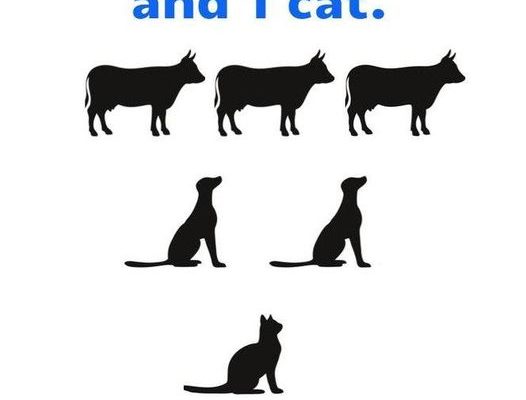At first glance, this question might seem like it’s asking for the total number of legs among all the animals. Let’s break it down step by step.
Cows:
Each cow has 4 legs, and there are 3 cows.
4 legs per cow × 3 cows = 12 legs.
Dogs:
Each dog also has 4 legs, and there are 2 dogs.
4 legs per dog × 2 dogs = 8 legs.
Cat:
The single cat, just like the cows and dogs, has 4 legs.
4 legs per cat × 1 cat = 4 legs.
So, when you sum all the legs of the animals together:
12 (cows) + 8 (dogs) + 4 (cat) = 24 legs in total.
At this point, you might feel confident that 24 is the right answer. However, here’s where the trick of the question reveals itself. The teaser doesn’t ask how many legs the animals have altogether; instead, it asks, “How many legs do YOU have?”
The phrasing of the question is designed to make you focus on the animals’ legs, but the key is in the “you.” It’s really about your own legs, not the animals’. So, assuming you’re a typical human, the correct answer is 2 legs — yours!
Final Answer:
While the question initially draws your attention to the animals, the right answer is 2 legs, referring to your own. This clever puzzle plays with your instincts, making you think about the animals while subtly shifting the focus to yourself.
This type of riddle is a great reminder that sometimes the most obvious answer isn’t the right one. It’s all about reading the question carefully and understanding what’s truly being asked.



